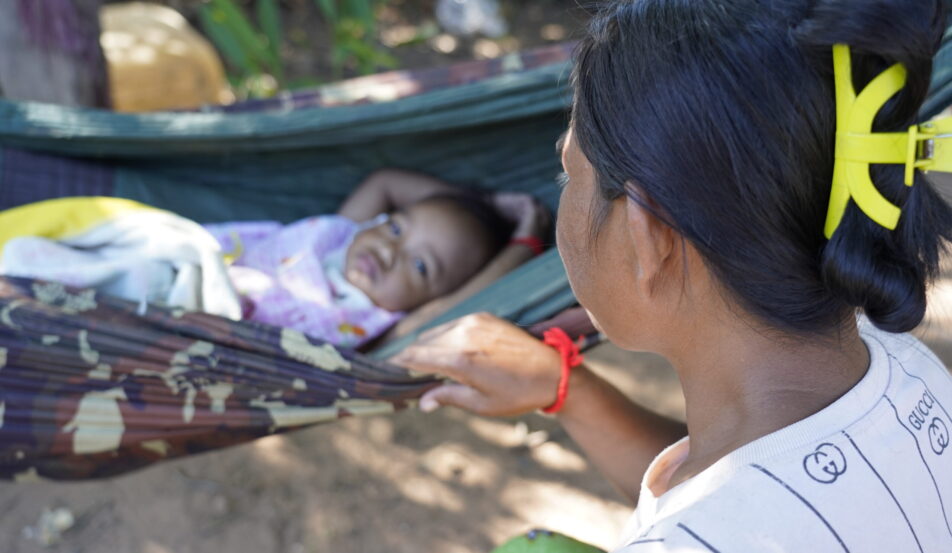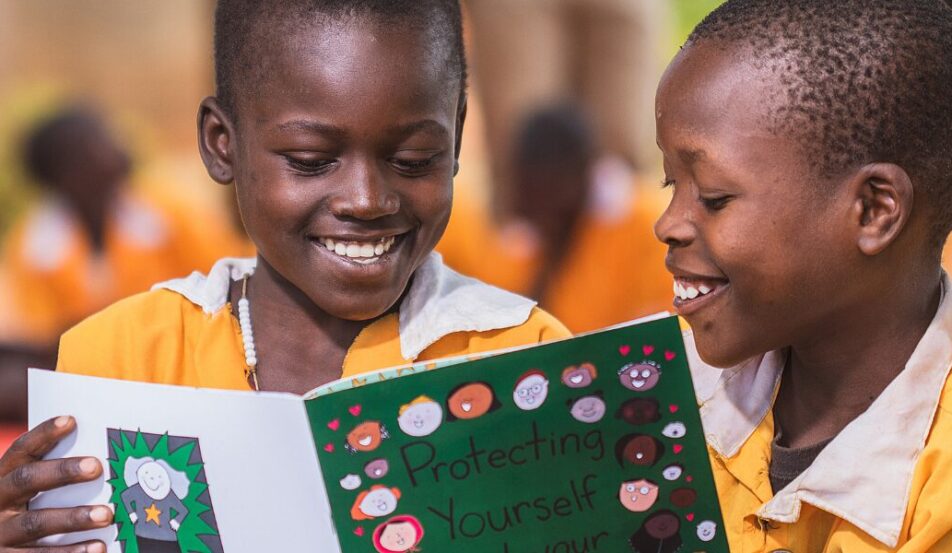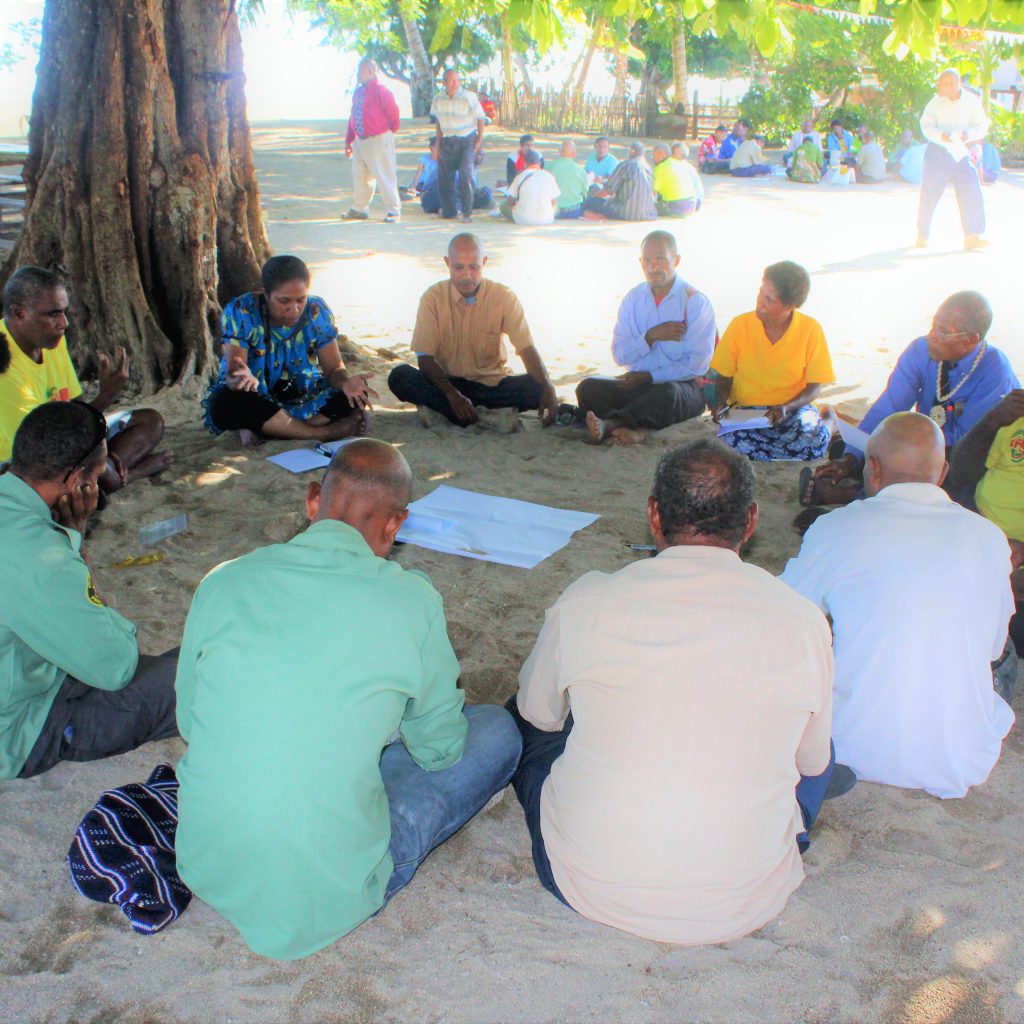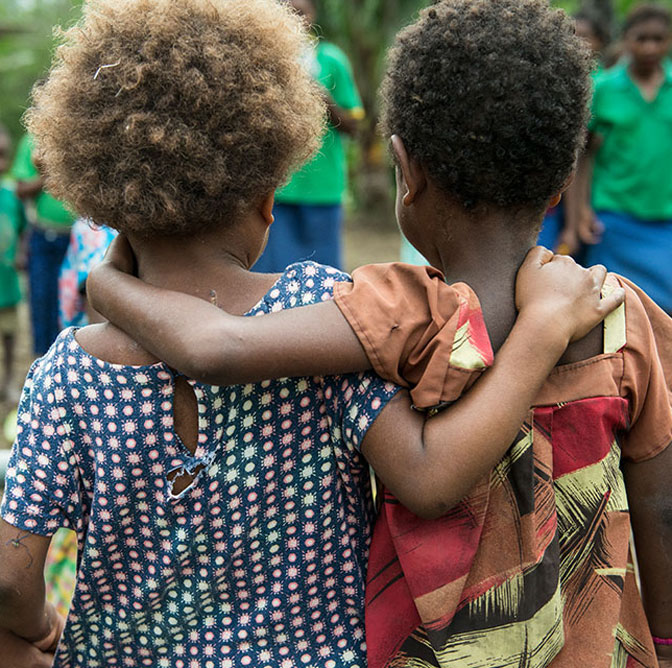As the training begins, Carolyne listens eagerly and takes notes, while also explaining and translating the information to Giniat and Yane in their local Daga language. “I am excited as this is my first training after being recently appointed as a magistrate representing Nonou ward,” says Carolyne.
She is not the only one. While many of the participants have served their communities for more than 20 years, this is the first time they have taken part in a workshop focused on child justice. Until now, these officials would have relied on cultural norms and practices when conducting their work, with little understanding of contemporary laws.
Nichodemus Mosoro, deputy secretary of justice administration at the PNG Government’s Department of Justice and Attorney General, notes: “We have these new laws in place, the Family Protection Act, Lukautim Pikinini Act and the Juvenile Justice Act. But like all laws there must be implemented.
“Village court officials play a vital role in rural areas. They know about the cultural practices and norms of that particular locality and are best equipped to deal with the children of that particular locality as well. But they need to be trained on contemporary laws, given the rise in the type of offences that a village courts are dealing with.”
For Giniat, the workshop has provided valuable insights on how to manage child cases in the village court system. He explains: “We have handled many child cases, but we have been applying the same principles and penalties to both children and adults. For instance, if a 16 year old gives birth to a child, she stops going to school as she is no longer considered a child but a mother.
“With this training I have learnt that everyone under the age of 18 is considered a child, and is covered under the Lukautim Pikinini Act. This means her case will be addressed under the Act and she has the right to continue her education and must be cared for as a child.
Participants also learnt the importance of using a child-focused approach when working with young people. Giniat says: “This training has taught us to address children’s issues using a different approach so that they are comfortable around us.”







